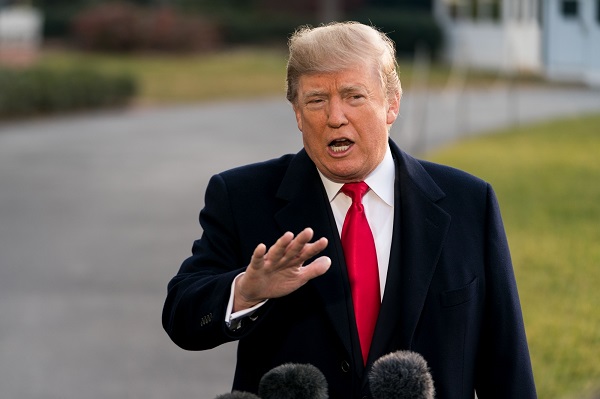Washington, The Donald Trump administration is pushing for designating the Muslim Brotherhood a foreign terrorist organisation, according to officials familiar with the matter.
The Muslim Brotherhood, set up in 1928 in Egypt, has for decades used violence to pursue its goal of a society governed by Islamic law. It renounced violence in the 1970s and embraced democracy, although some of its off-shoots and former members continued to engage in terrorism.
The White House directed national security and diplomatic officials to find a way to impose sanctions on the group after the April 9 White House visit by Egyptian President Abdel Fattah El-Sisi, for whom the Brotherhood represents a source of political opposition, the New York Times reported on Tuesday.
At a private meeting, El-Sisi urged Trump to take the step and join Egypt in branding the Islamist movement a terrorist organisation.
Its branding as a terrorist organisation would impose wide-ranging economic and travel sanctions on companies and individuals who interact with the group. According to daily, Trump responded affirmatively to El-Sisi, saying “it would make sense”.
But the proposal prompted fierce debate within the administration, including at a senior-level meeting of policymakers from various departments last week convened by the White House’s National Security Council, the officials said.
In a statement, White House Press Secretary Sarah Huckabee Sanders acknowledged that the administration was working on designating the Muslim Brotherhood as terrorist organisation.
Trump’s National Security Adviser John Bolton and Secretary of State Mike Pompeo support the idea, but the Pentagon, career national security staff, government lawyers and diplomatic officials voiced legal and policy objections and have been scrambling to find a more limited step that would satisfy the White House, officials said.
Officials argue the criteria for designating a terrorist organisation are not a good fit for the Muslim Brotherhood, which is less a coherent body than a loose-knit movement with chapters in different countries that either use that moniker or have strong historical ties to it.
Several political parties in countries, like Tunisia and Jordan, consider themselves Muslim Brotherhood or have ties to it, but eschew violent extremism.
As a matter of policy, such a designation could have rippling consequences, including further stressing relations with Turkey, whose President Recep Tayyip Erdogan is a staunch Brotherhood supporter, the New York Times reported.
It is also unclear what the consequences would be for Americans and American humanitarian organisations with links to the group, and human rights officials worry that El-Sisi might use it to justify an even harsher crackdown against his opponents.
The push for sanctions on the Brotherhood is the latest of several significant foreign policy decisions by Trump that appear to have been influenced by talking to autocratic foreign leaders without first being fully vetted by career government professionals, the daily said.










